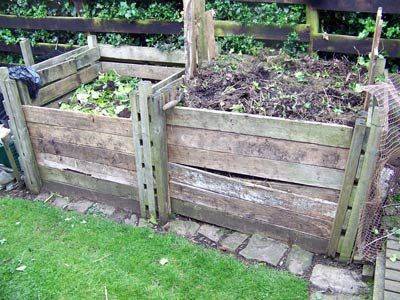Every gardener wants to have better plants and flowers, but, sometimes we just need to get to the root of the matter so to speak. There is nothing more satisfying than a deep rich loamy soil. Unfortunately, unless you are very luck, you are unlikely to inherit such a soil. Nevertheless it is definitely worth investing the time and energy to improve your soil. Over time looking after your soil will pay dividends.
Mulching Ideas, Tips & Guides

Garden Seats to view Cyclamen
The 18th century Union Jack Gardens at Wentworth Castle were originally called the ‘wilderness’. It was dense with shapes, texture and contrasts of shade and light. Now it may be a suitable place to take a seat in the garden and see the original Yew trees and the variegated ‘creamed’ Hollies.
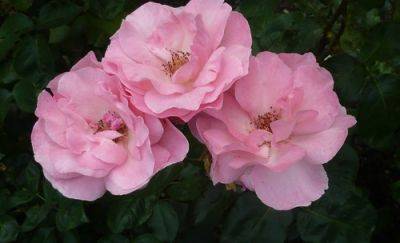
Growing Top Ten Patio Roses
What is a Patio Rose if it isn’t a rose grown on a patio? Patio roses grow bigger and bushier than miniatures and are about 14 -24 inch high, yet they are perfectly formed. H.T. Bush and Floribunda roses grow bigger but Patio roses are easy and decorative.
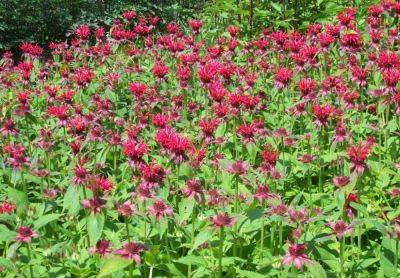
Monarda or Bee Balm Cultivars
Monarda enmass
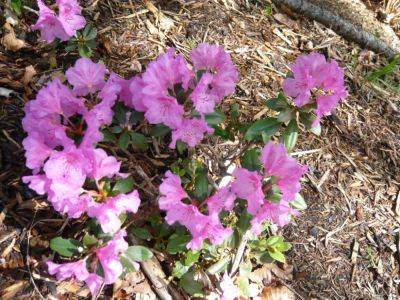
Strulch does well in Pots
Strulch is an organic mulch made from straw with embedded minerals. I made use of a lot of Strulch this spring and it has done a good job in several ways most visibly on the plants grown in pots.
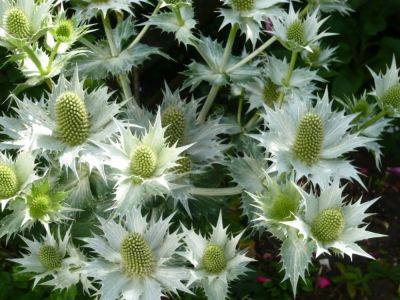
Garden Ghosts of Christmas Past Winterising Tips
Eryngium giganteum better known now as ‘Miss Willmott’s ghost’ is my reminder to get ready for colder weather and Christmas. I have disconnected my hose pipes, lagged outside taps and cleaned up at least one water feature. For some reason one job I procrastinate over is protecting my pots, containers and ornaments from hard frosts. I know it is time to insulate or put them on to legs to provide some protection. At least they are already grouped together, sheltered from high wind and some of the worst weather.
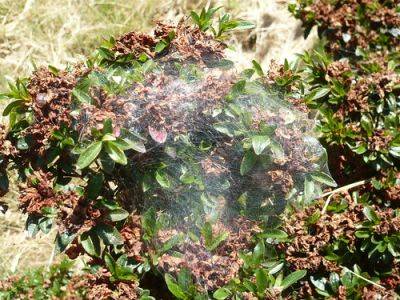
Spiders as Treatment for Aphids
Yes you can rest happily with this organic treatment for your Aphids. It is called ‘spiders’ and they can be found in every garden and often in your own home.

PH Testing – Don’t Bother – Apply Commonsense
I love my acid loving Rhododendrons, Azaleas and many other ericaeous plants. So no wonder I have a ‘kit’ to test my soil for the level of alkalinity or acidity. Having said that I think it is a waste of time and money in the majority of cases. I now try to use commonsense instead.
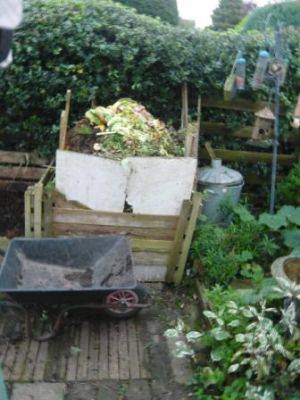
Making Mulch not Compost
I know I can use all sorts of materials as a mulch but I like the organic versions. Here I have piled it high well before it is ready as a mulch much less a compost
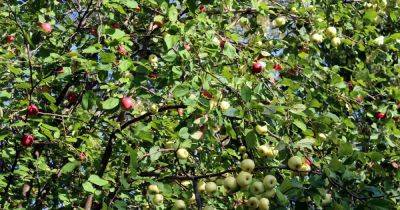
Your gardening questions answered: How can I control the ivy growth on my apple tree?
A: As much as wild ivy provides a very important habitat for birds and insects, and the arboreal form (the older, shrubby growth which produces flowers), and is a really valuable source of nectar, it can also be problematic in established gardens where it can damage built structures as well as some established, older trees such as your apple tree. With the latter, very heavy ivy growth can eventually cause death by overburdening the tree’s leafy canopy, which in turn can result in (a) broken branches, leading to an increased risk of disease and (b) destabilising of the tree’s root system, increasing the risk of it falling in a storm. Very heavy ivy growth in the canopy of a fruit tree can also reduce the amount of light needed for healthy growth, interfere with blossom set and slow down ripening of the fruit.
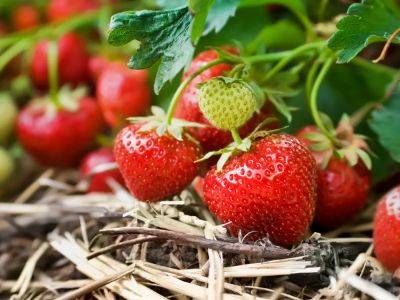
Simple tips for maintaining strawberry plants
Reviews and recommendations are unbiased and products are independently selected. Postmedia may earn an affiliate commission from purchases made through links on this page.
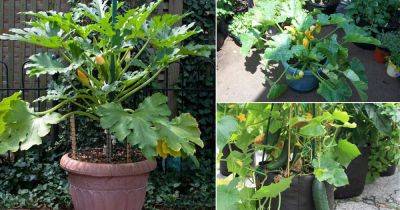
How to Grow Zucchini in a Pot Successfully | Growing Zucchini in Home
Even if you have a shortage of space, you can grow this vegetable in pots on your balcony, rooftop, or patio. Let’s have a look at How to Grow Zucchini in a Pot.
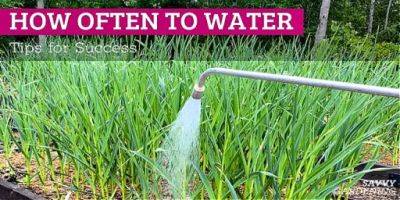
How Often Should I Water My Garden? Tips for Success!
Of all the questions I get asked as a gardening expert, “How often should I water my garden?” easily cracks the top 10. It can be difficult to get watering frequency, watering amounts, and even watering methods just right. But doing so is critical to your success, as they influence everything from the flavor and storage capacity of the food you grow to the size and timing of blooms on perennial plants. There are plenty of tools and techniques to help you get a handle on how often you should water and how you can deliver the right amount of water when and where your plants need it. If you’ve ever wondered ‘How often should I water my garden?’ we’ve got the answers! Keep reading to learn when and how long to water.
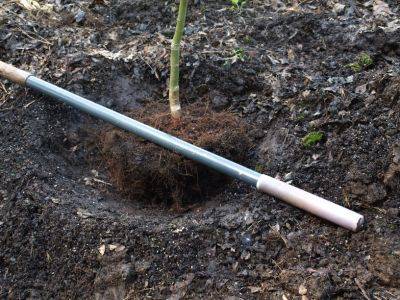
Plant A Tree
December is the month we celebrate Arbor Day. So, consider planting a tree in honor of this day. Start by selecting the right plant for the site. First, analyze the chosen site by checking the soil drainage, number of sunlight hours, and amount of available space for a tree to reach its mature height and width. Once these factors are determined a tree species can be selected. CAUTION: Call 811, two to three working days before you dig. This service will mark underground utility lines.
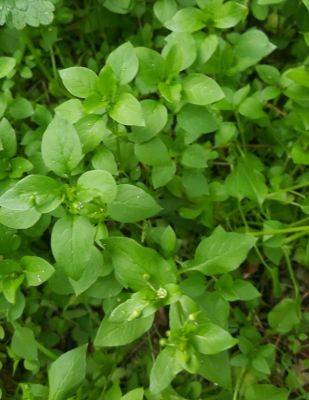
Common Chickweed (Stellaria media)
Common chickweed is a low, spreading, winter annual weed that germinates when we receive lots of cool, wet weather. Its leaves are opposite each other, smooth and elliptical in shape. It is tolerant of a variety of conditions and thrives in moist, shady locations. This weed can produce seeds five weeks after germination and will continue to produce seeds for months. Each common chickweed plant can produce over 800 seeds and the seeds can lay dormant in soil for up to 10 years. Even once the weed is uprooted, it can continue to produce seeds and can even reestablish itself, if left on the ground.
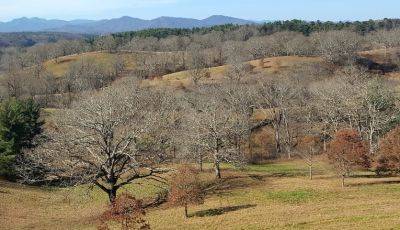
Winter Leaf Marcescence
Have you noticed the persistent brown leaves still hanging on some deciduous trees long after their foliar companions have fallen? This usually becomes very apparent after normal leaf drop in early winter. These brown leaves may remain attached until spring bud growth pushes them free.
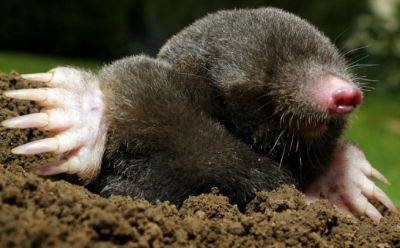
Goodbye Moles & Voles!
What can we do about moles and voles in the home lawn and landscape? First, we need to know how to tell the difference between the two, in other words “know thy enemy!” For more information on how to tell the difference between moles and voles, please see HGIC 2366, How to Tell the Difference between Moles & Voles.
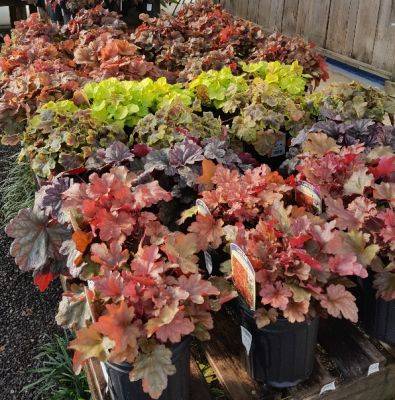
Heuchera – Coral Bells
Coral bells are a wonderful addition to a partly shady landscape planting. They come in an array of foliar hues that will complement most any landscape color scheme. Coral bells (genus Heuchera) are sometimes known as alumroots, and there are many species that are native to North America. Two of the earlier cultivars introduced were ‘Dale’s Strain’, which has a beautiful silver-blue marbled foliage with contrasting pale purplish venation, and ‘Palace Purple’ with bronze to reddish purple foliage.
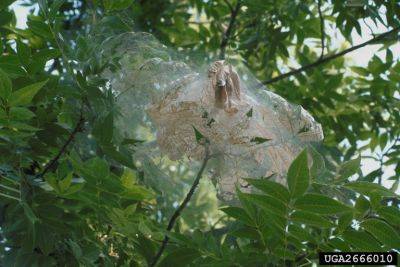
Fall Webworm Management
There are two web-spinning caterpillars in our region, the eastern tent caterpillar and the fall webworm. The placement of the webbing on the tree will help identify which caterpillar is present.
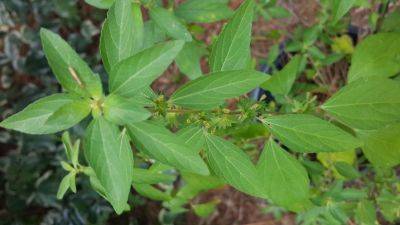
Weed of the Month – Virginia Copperleaf
Virginia copperleaf is a tall, branched summer annual that can grow three feet tall. It takes its name from the copper colored leaves of its late summer color. This weed is a North American native that is found from Maine to Georgia and as far west as Texas and north to South Dakota. It is a member of the spurge family and is poisonous, but it does not have the milky sap that is typical of other family members. The simple leaves are oppositely arranged on the stems when the plant is a young seedling, but they change to an alternate arrangement as the weed matures.
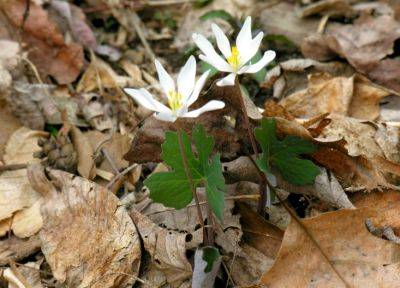
What to do with all the leaves?
Each autumn, a precious and free resource for gardeners falls from the sky. Many folks choose to bag this excellent source of nutrients and have them hauled away. Leaves are an invaluable source of essential plant nutrients, such as calcium, phosphorus, and potassium.
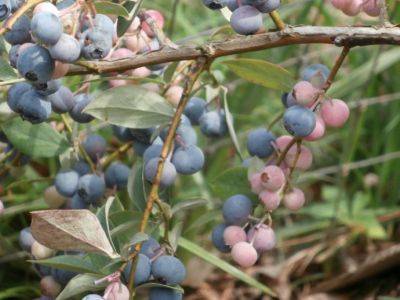
Late Season Blueberry Plants Management
After the blueberry harvest is over in the home berry patch, we often neglect late season care for our plants. Consistent care over the entire growing season will improve the chances of a good crop this season as well as next year. Proper fertility, freedom from weed competition, and consistent moisture during the growing season will maintain good growth and vigor of blueberry plants.
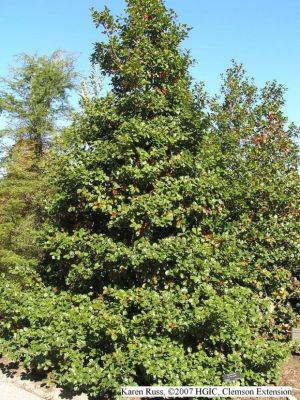
Irrigating During Winter Months: Trees & Shrubs
During February, tree and shrub irrigation requirements often get overlooked. Many gardeners tend to think these types of plants do not need water during winter or early spring, because of lack of warm temperatures, or because they are dormant. However, the root systems still need moisture to sustain themselves. The question then becomes, how often should the plant be watered. Irrigation needs are driven by several factors, rainfall, temperature, and plant metabolism.
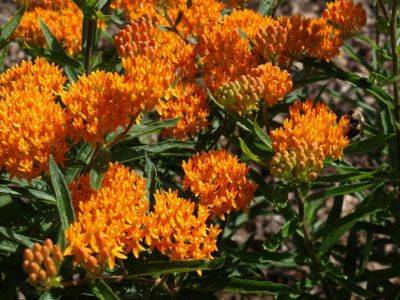
Butterfly Weed
Butterfly weed (Asclepias tuberosa) is a beautiful native wildflower that is an excellent source of pollen and nectar for beneficial pollinating insects. The genus name Asclepias is derived from the Greek god of medicine, Asklepios, and the species name means a tuberous, taproot.
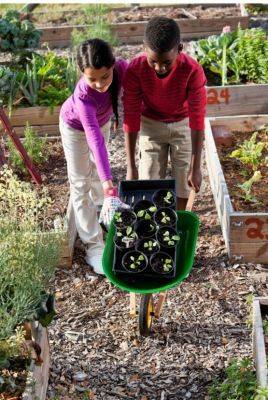
A Step-by-Step Guide to School or Community Garden Clean-up
Cleaning up a school garden after a prolonged absence or period of neglect can seem like an overwhelming task, particularly now as schools are working out how to reopen safely. Although it seems the world has changed in many ways, school gardens still offer students hands-on, experiential learning opportunities that cannot be found inside four walls. Perhaps now more than ever, it’s important to give children the chance to explore in a garden and to offer spaces for outdoor learning. Here are a few tips for creating a safe and positive garden environment, even if you haven’t been able to work in your school garden in awhile.
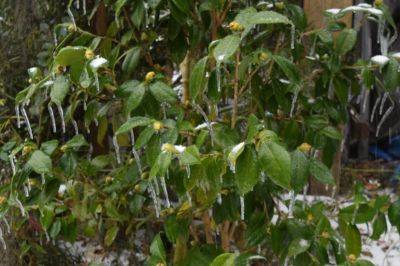
Rx for Cold Damaged Plants
As temperatures dip down to freezing and below freezing, plants that are not acclimated will die back to the ground or ultimately die. Most tropical plants do not like drafts and thermometer readings below 40 °F. They don’t have enough antifreeze in their tissues, the water in their cells expand and cell walls burst.
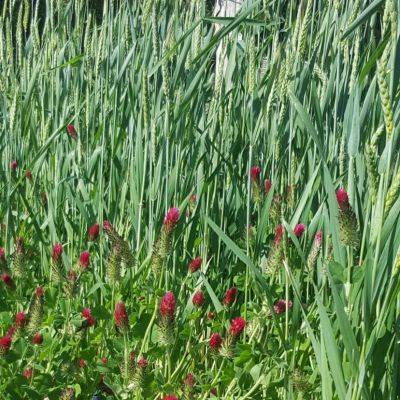
Cover Crops
Cover crops, also known as green manures, are used by gardeners to add organic matter, protect the soil from erosion, suppress weeds, and add nutrients to the soil. Gardeners typically plant legume cover crops help to fix nitrogen in the soil, while non-legumes add biomass, known as organic matter, to the soil. Cover crops can be used in a variety of ways. Most commonly, they are planted following an edible crop or in fallow areas, grown for a period, and then killed and worked into the soil. Cover crops can also be intercropped by planting between rows or around desired plants to provide a living mulch for weed suppression.
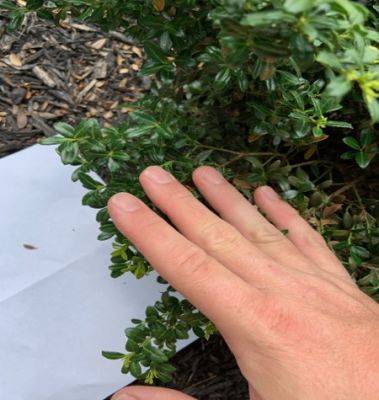
Selecting Appropriate Pest Management Strategies
Spring is coming, and with it comes weeds, bugs, and diseases, oh my! Many home gardeners often get frustrated about what to do for various garden pests. Whether it is a weed, insect, or disease, the first step is to get proper identification. With Extension offices in every county, the local county extension agent is a great first option for identification! For situations where a more definitive identification is necessary, samples can be submitted to the Clemson Plant Problem Clinic.
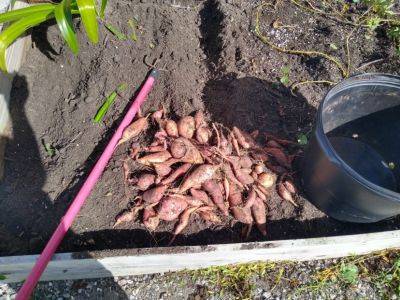
Sweet Potatoes
Sweet potatoes, any way you serve them, are yummy and very nutritious. They are one thing that you can plant in the garden from April until the first of July, so you still have time to get them in the ground. I received some slips of ‘Bradshaw’ sweet potato recently and am looking forward to growing them in the garden at the Clemson Extension office. David Bradshaw was one of the most beloved professors in the Horticulture Department, and he was very involved with organic and heirloom plants at the South Carolina Botanical Garden. The sweet potato was developed from the Mahon Yam (which is really a sweet potato) by Dr. Bradshaw and given to one of my classmates who has grown it for many years, saving a few each year to grow out the slips.
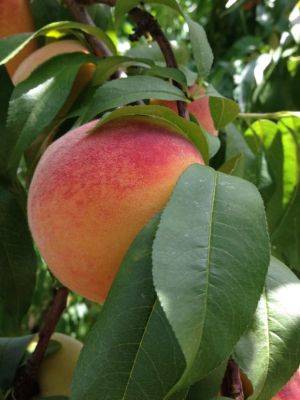
How Much Should I Irrigate my Peach Trees?
Peaches are among the most popular fruit trees for backyard gardeners, especially in the southeastern U.S. And, now that the summer is upon us, a common question from backyard gardeners is: when and how much should I irrigate my peach trees?
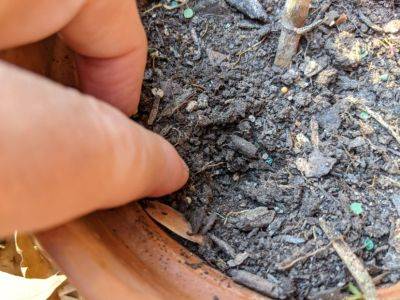
Should I Water My Plants in the Winter?
It should go without saying that water is vital for plant survival. Plants use water for photosynthesis, transporting water-soluble nutrients, and maintaining turgidity. Turgidity is the water pressure against the inside of a plant’s cell walls that keep plants upright and supple. When a plant lacks water, decreased turgor pressure causes the plant to wilt. During the spring, summer, and fall, wilted leaves indicate a plant lacks water, and experienced gardeners know supplemental water is necessary to ‘perk it up.’ But during the winter, when many plants lose their leaves or wilting leaves are harder to recognize, how do gardeners know when to water?
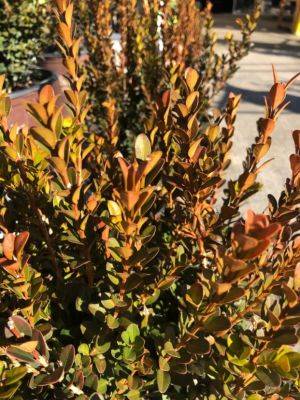
Boxwood Bronzing Blues
Even boxwoods get the winter blues, bronzing blues, that is.
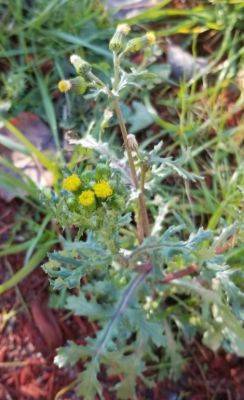
Weed of the Month Common Groundsel
Common groundsel (Senecio vulgaris ) is an annual winter weed in the aster family. Luckily, it rarely becomes a problem in the lawn since it does not survive mowing. It can, however, quickly become a problem in vegetable gardens and landscape beds if ignored. Common groundsel can produce flowers within 45 days of germination and up to 25,000 seeds per plant. The seeds are easily spread by the wind due to their feathery bristles, called pappus, that function as a parachute. The seeds do not survive for long in the soil; therefore, diligent removal before flowering can help get infestations under control in a couple of seasons. After pulling, plants need to be disposed of, as open flowers can continue to produce seeds if left in the landscape.
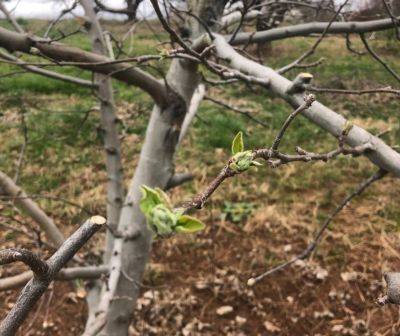
SC Fruit and Vegetable Field Report- March 14, 2022
Dr. Matt Cutulle reports, “I saw my first nutsedge plants this year pop up in the plastic mulch of a fellow researcher’s trial last week in Charleston. Soil temperatures in plastic mulch systems are going to be higher, which may lead to earlier sprouting of yellow nutsedge tubers. New tubers begin forming four to six weeks after a new shoot emerges. Individual nutsedge plants may eventually form patches 10 feet or more in diameter, thus it is important to practice field sanitation once an infestation is recognized.”
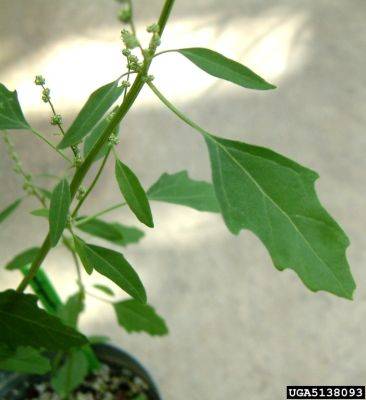
Weed of the Month Lambsquarters
Lambsquarters (Chenopodium album) is a close relative of quinoa and is generally considered a famine food. It was once a popular green but lost favor after spinach was introduced to Europeans around the 16th century. Although the plant is dense in nutrients, it can be mildly toxic if eaten in often or large quantities. Luckily, cooking resolves this issue. It remains a pervasive weed in agriculture and is found throughout the United States. Lamb’s quarters can be found in waste areas, roadsides, home gardens, and landscape beds.
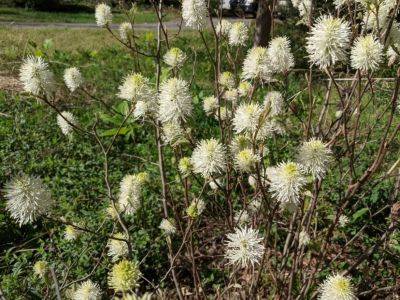
K.I.S.S. Shrubs – The Lazy Gardener’s Shrubs
While native grasses and forbs are my favorite lazy gardener plants, native shrubs rank as must-haves for an easy and attractive landscape. All native or introduced shrubs are generally carefree when they are well-chosen, thoughtfully placed, and planted correctly. Unhealthy plants have problems. Well, duh!, you might say! Any silly person could tell me that. But often, the solutions are obvious.
Popular Topics
Our site greengrove.cc offers you to spend great time reading Mulching latest Tips & Guides. Enjoy scrolling Mulching Tips & Guides to learn more. Stay tuned following daily updates of Mulching hacks and apply them in your real life. Be sure, you won’t regret entering the site once, because here you will find a lot of useful Mulching stuff that will help you a lot in your daily life! Check it out yourself!
